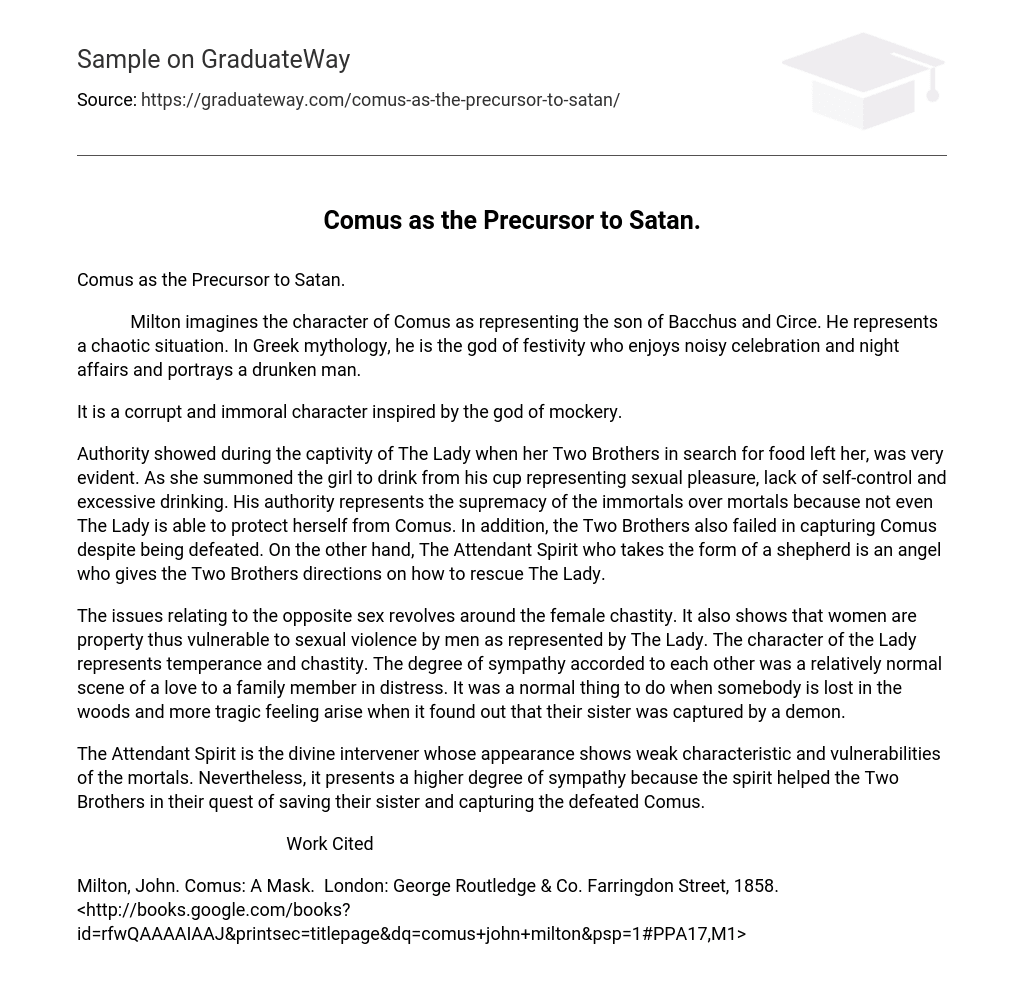Milton imagines the character of Comus as representing the son of Bacchus and Circe. He represents a chaotic situation. In Greek mythology, he is the god of festivity who enjoys noisy celebration and night affairs and portrays a drunken man.
It is a corrupt and immoral character inspired by the god of mockery.
Authority showed during the captivity of The Lady when her Two Brothers in search for food left her, was very evident. As she summoned the girl to drink from his cup representing sexual pleasure, lack of self-control and excessive drinking. His authority represents the supremacy of the immortals over mortals because not even The Lady is able to protect herself from Comus. In addition, the Two Brothers also failed in capturing Comus despite being defeated. On the other hand, The Attendant Spirit who takes the form of a shepherd is an angel who gives the Two Brothers directions on how to rescue The Lady.
The issues relating to the opposite sex revolves around the female chastity. It also shows that women are property thus vulnerable to sexual violence by men as represented by The Lady. The character of the Lady represents temperance and chastity. The degree of sympathy accorded to each other was a relatively normal scene of a love to a family member in distress. It was a normal thing to do when somebody is lost in the woods and more tragic feeling arise when it found out that their sister was captured by a demon.
The Attendant Spirit is the divine intervener whose appearance shows weak characteristic and vulnerabilities of the mortals. Nevertheless, it presents a higher degree of sympathy because the spirit helped the Two Brothers in their quest of saving their sister and capturing the defeated Comus.
Work Cited
Milton, John. Comus: A Mask. London: George Routledge & Co. Farringdon Street, 1858.<http://books.google.com/books?id=rfwQAAAAIAAJ&printsec=titlepage&dq=comus+john+milton&psp=1#PPA17,M1>





